In a world where computers are getting smarter than ever, the term “artificial intelligence cloud” is becoming the talk of the tech town. Imagine a place where machines not only think but also learn, adapt, and maybe even crack a joke or two—if they had a sense of humor. This isn’t just a sci-fi fantasy; it’s the future of computing that’s already knocking on our doors.
The artificial intelligence cloud is revolutionizing how businesses operate, offering powerful tools that can analyze data faster than you can say “machine learning.” With this tech marvel, companies can harness the power of AI without breaking the bank or needing a PhD in computer science. So, buckle up! The journey into the cloud is just getting started, and it promises to be a wild ride filled with innovation, efficiency, and perhaps a few unexpected surprises.
Table of Contents
ToggleOverview of Artificial Intelligence Cloud
Artificial intelligence cloud refers to a set of services that leverage cloud computing to deliver advanced AI capabilities. This technology allows organizations to access powerful machine learning models and data processing tools without significant upfront investments. Businesses can utilize AI for tasks such as data analysis, predictive modeling, and automation, streamlining operations and enhancing decision-making.
Key features of artificial intelligence cloud include scalability, flexibility, and ease of integration. Scalability enables companies to adjust resources according to their needs, ensuring optimal performance during high-demand periods. Flexibility allows businesses to experiment with various AI applications, discovering the most effective solutions for their specific challenges. Integration with existing systems is crucial, as it minimizes disruption and maximizes the value of AI investments.
Numerous companies are adopting artificial intelligence cloud solutions to drive innovation across industries. For instance, retailers utilize these services to optimize inventory management and personalize customer experiences. In healthcare, AI cloud applications assist in diagnostics and treatment recommendations, improving patient outcomes.
The market for artificial intelligence cloud continues to grow rapidly. According to industry reports, the global AI cloud market is expected to reach $53.2 billion by 2028, driven by increasing demand for AI-driven solutions. As more organizations recognize the benefits of artificial intelligence cloud, its adoption is likely to accelerate, reshaping the technology landscape.
Investing in artificial intelligence cloud provides businesses with the tools necessary for competitive advantage. By harnessing these capabilities, organizations can unlock new revenue streams, improve operational efficiency, and foster innovation in their respective fields.
Key Features of Artificial Intelligence Cloud

Artificial intelligence cloud encompasses several critical features that enhance its utility for organizations. This section explores key dimensions such as scalability, flexibility, and security.
Scalability
Scalability allows businesses to adjust resources seamlessly. Organizations can accommodate varying workloads without significant downtime. Increased demand for AI applications demands robust scalability. Many providers offer solutions that scale automatically, ensuring performance remains optimal. As companies grow or ramp up AI initiatives, they can allocate resources effectively. Managers can monitor usage patterns and adjust accordingly, optimizing costs and efficiency.
Flexibility
Flexibility fosters innovation by enabling organizations to experiment with different AI models. Companies can integrate multiple services and tools based on unique requirements. Customizing workflows becomes effortless as organizations test new applications. Various cloud solutions support hybrid and multi-cloud environments, enhancing flexibility further. Teams can quickly deploy updates and iterate on existing solutions, capturing new opportunities as they arise. Diverse deployment options mean businesses maintain control over their AI strategies.
Security
Security is paramount in the artificial intelligence cloud structure. Providers implement robust measures to protect sensitive data. End-to-end encryption safeguards data both in transit and at rest. Compliance with regulations like GDPR ensures organizations meet industry standards. Continuous monitoring allows for real-time threat detection and response. By prioritizing security protocols, businesses can confidently leverage AI technologies while minimizing risk. Security features contribute to building trust in AI applications, encouraging broader adoption.
Benefits of Using Artificial Intelligence Cloud
Artificial intelligence cloud solutions offer numerous advantages for businesses, streamlining processes and enhancing overall performance.
Cost-Effectiveness
Utilizing artificial intelligence cloud capabilities reduces the need for extensive hardware investments. Organizations access powerful AI tools on a pay-as-you-go basis, eliminating upfront costs while maximizing resources. Flexible pricing models allow companies to optimize expenses based on current needs, scaling services up or down as required. Instead of maintaining dedicated infrastructure, they can allocate budgets towards innovative projects, improving ROI. This model enhances financial efficiency while making advanced AI capabilities accessible to a broader range of businesses.
Enhanced Collaboration
Artificial intelligence cloud fosters improved collaboration among teams. By providing centralized access to AI tools and data, team members can easily share insights and work together on projects. Real-time data analysis allows for informed decision-making, empowering employees to engage with current information. Increased accessibility to AI capabilities means that diverse teams can leverage technology regardless of technical expertise. As a result, collaboration becomes more efficient, sparking innovation and enhancing productivity across the organization.
Leading Providers of Artificial Intelligence Cloud
Several key players dominate the artificial intelligence cloud market, each offering unique services and capabilities. Below are some of the leading providers.
Amazon Web Services
Amazon Web Services (AWS) leads in the artificial intelligence cloud sector with a comprehensive suite of services. Its solutions include Amazon SageMaker for building machine learning models and Amazon Comprehend for natural language processing tasks. Organizations can leverage AWS’s robust infrastructure to manage large datasets efficiently. Enhanced scalability enables businesses of all sizes to access powerful AI tools without significant capital investment. Moreover, the flexibility of AWS allows users to customize services according to specific business needs, ensuring optimal performance.
Microsoft Azure
Microsoft Azure provides extensive artificial intelligence capabilities through its Azure AI platform. Companies can utilize Azure Machine Learning to build predictive models using their own data. A notable feature is the Azure Bot Service, which enables developers to create intelligent conversational agents quickly. Data privacy and security take precedence in Azure’s offerings, aligning with compliance standards across various industries. Increased integration with other Microsoft services further enhances usability, creating a seamless environment for organizations to adopt AI solutions.
Google Cloud Platform
Google Cloud Platform (GCP) stands out for its advanced AI and machine learning services. The platform features AutoML, allowing users to build custom machine learning models easily. With powerful tools like BigQuery and TensorFlow, organizations can perform large-scale data analysis efficiently. GCP emphasizes collaboration by facilitating teamwork through shared resources and tools, enhancing productivity. Additionally, Google’s commitment to security ensures robust data protection, fostering trust among enterprises in adopting its AI offerings.
Challenges and Considerations
Deploying artificial intelligence cloud solutions involves several challenges and considerations. Data privacy emerges as a primary concern. Organizations process vast amounts of sensitive information in the cloud. To comply with regulations such as GDPR or CCPA, businesses must implement robust security measures.
Integration poses another significant challenge. Existing infrastructure may not align seamlessly with AI cloud technologies. Companies can face disruptions during transitions unless adequate planning occurs. Many organizations require skilled personnel to manage these integrations effectively, which adds to the complexity.
Costs represent a crucial consideration as well. While artificial intelligence cloud solutions offer cost-effective pricing models, unpredictable usage can result in unexpected expenses. Companies should monitor usage patterns closely to manage budgets effectively. Balancing performance and cost remains a key focus for financial decision-makers.
Ethical implications of AI technologies cannot be overlooked. Algorithms can exhibit biases based on skewed data sets. Ensuring fairness in AI applications is essential to avoid adverse impacts on marginalized groups. Organizations must prioritize transparency in their AI models to build trust among users.
Governance also plays a vital role in successful AI cloud deployment. Effective governance structures help organizations navigate compliance issues and ethical considerations. Establishing clear policies on AI usage guides teams in responsible practices.
Finally, staying current with advancements in artificial intelligence technology is necessary for organizations. Rapid innovations can make existing solutions obsolete. Organizations should foster a culture of continuous learning to remain competitive.
Addressing these challenges ensures organizations harness the full potential of artificial intelligence cloud solutions while minimizing risks.
The artificial intelligence cloud is poised to revolutionize how businesses operate. By making advanced AI tools accessible to a wider audience, it empowers organizations to innovate and streamline their processes. As companies adopt these solutions, they can enhance decision-making and improve operational efficiency.
With key features like scalability and flexibility, the artificial intelligence cloud allows businesses to adapt and experiment with AI applications seamlessly. As the market continues to grow, organizations that embrace this technology will likely gain a competitive edge. Staying informed about advancements and addressing challenges will be crucial for harnessing the full potential of artificial intelligence cloud solutions.



